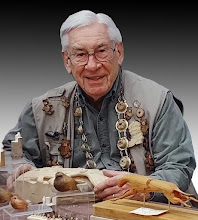Check out https://www.facebook.com/mistyhollowcarving
Misty Hollow Carving and Misty Hollow Digital Images
These
BLOGS are sponsored by my businesses.
“Misty Hollow
Carving” was
launched in October 2008
Making the Tough Calls - yikes!
The
following article arrived to my email In-Box this morning. After reading this I just had to pass it on.
With World
Cup Soccer championship game just completed yesterday the events the Referee
faced are very vivid in my mind.
I am a
Referee in a number of areas of my life.
This week I have to make “call” in plays that have unfolded in front of
me. The plays have left some folk calling for me to “blow the whistle”. Others are saying they did nothing wrong, “It
wasn’t my fault!” declares the other party in the skirmish that is taking
place.
And I am
the Referee. Please read this article
with these thoughts in mind – you may well be facing a similar problem(s). Enjoy.
Making the Tough Call when everyone’s
eyes are on you
By
The John Maxwell Company
Entire
countries come to a standstill during the World Cup soccer tournament, as
people pause from their daily routine to tune into the action. Part of the
excitement comes from the fact that games are often decided by a single goal.
One well-timed kick can make all the difference.
With such a
small margin separating victory and defeat, the decisions made by referees play
a significant role in determining the outcome of a match. This is particularly
true when two players collide within the penalty box, and officials must
determine whether or not a foul has been committed. If so, a penalty shot is
awarded and one team gains a golden opportunity to score a goal.
With tens
of thousands of spectators in the stadium, and millions of fans watching on
television, referees are under immense pressure to make the right call.
Whatever decision they make will be subject to endless scrutiny and fierce
criticism.
Like soccer
refs, leaders eventually face situations that require making a tough call. Each
tough call has the following in common:
- It demands
a risk. If it’s easy or comfortable, then it’s not a tough call.
- It will be second-guessed and criticized. You will never make a tough call
and have unanimous support for your decision.
- It is costly. You will lose sleep over it, sacrifice finances because of it,
and perhaps even sever relationships as a consequence of it.
- If made correctly, a tough call will lead to a breakthrough that lifts your
leadership to a higher level.
How do make
good decisions in circumstances where the right choice is not perfectly clear
and where so much is at stake? Let’s return to the analogy of the soccer
referee for guidance. A good referee…
1) Makes a timely decision
A referee
does not wait several minutes after blowing his whistle to issue his decision.
As soon as he stops play, the official confidently steps forward to signal
whether or not an infraction taken place.
If you tend
to dread the finality of taking a stand or calling the shots, you may be
tempted to put off the decision. It’s easy to rationalize your unwillingness to
decide.
For example:
• “That can wait. There’s no reason to rush. We’ll cross that bridge when we
come to it.”
• “It’s such a tough call. It could go either way. I’m just not sure, so I’ll
reflect on it for a while.”
• “It’s a lose-lose decision, where someone’s going to get hurt regardless. So
why not put if off and postpone the damage as long as possible?”
If any of these comments sound familiar, your challenge is to condense the
timeframe in which you make your decision. Although you may trick yourself into
believing that “it can wait,” a cloud of worry will hover over your head until
you take initiative to make the call.
2) Refuses to surrender the decision
to others
A good
referee refuses to be swayed by the crowd, and makes his judgment according to
personal observation rather than the emotions of spectators.
Likewise,
competent leaders make decisions after weighing the evidence in light of their
vision and values. Rather than seeking to please their people or to pacify
their critics, leaders ground their choice on what’s best for the long-run
health of the organization.
3) Does not say “yes” to everything
Soccer
players notoriously try to influence the officials, diving to the turf in
exaggerated pain in the hopes of persuading a referee to call a foul. Thus, a
good ref frequently denies players’ requests for a foul to be called, refusing
to blow the whistle every time a player falls to the ground in apparent agony.
You’re not
making smart decisions if you’re always giving the go-ahead or thumbs-up. By
saying “yes” to everyone; you’re not being helpful and empowering. Instead,
you’re irresponsibly robbing resources from what matters most.
Question to Consider
How has
making a tough call led to a breakthrough in your leadership?
Reference –
Making
the Tough Call when everyone’s eyes are on you
~ Murray Lincoln ~
www.murraylincoln.com
https://www.facebook.com/mistyhollowcarving
For your inspection
http://mistyhollow-digitalimages.blogspot.ca/
See my Web Site please copy this URL
address and email to someone today http://www.murraylincoln.com/ and http://mistyhollow-digitalimages.blogspot.ca/





No comments:
Post a Comment